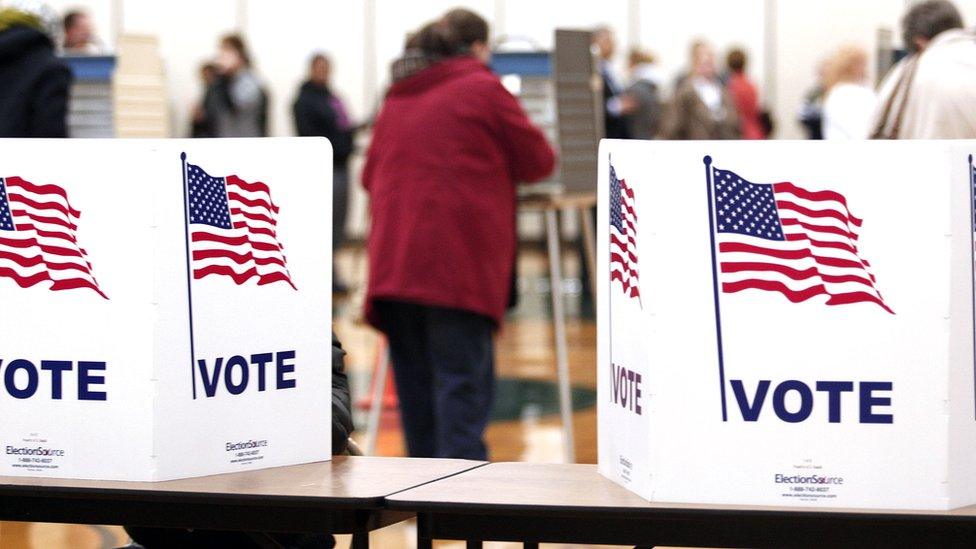US election 2016: America's date with destiny
- Published
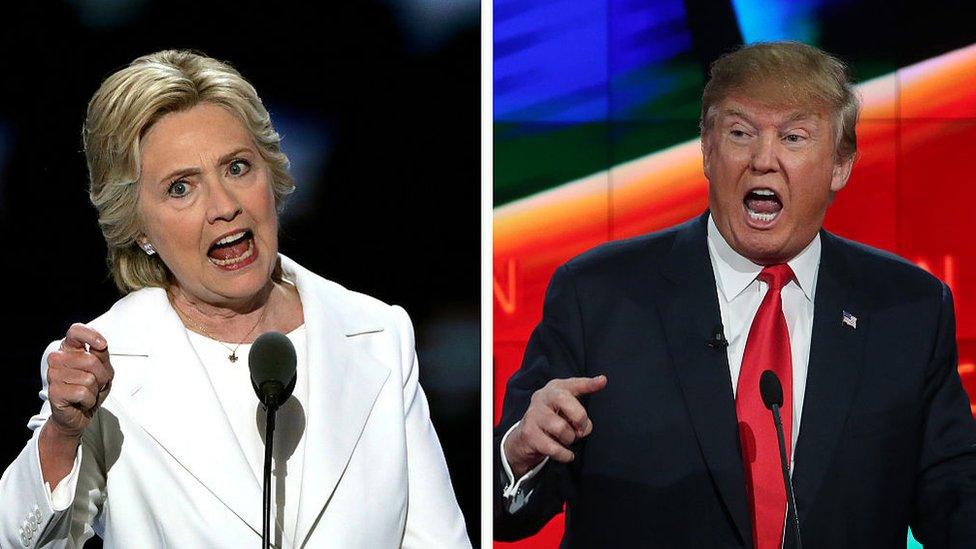
This long, bruising campaign is drawing to a close. America is holding its breath as to what follows. The political divide is deep.
A significant part of the country views Donald Trump as a thin-skinned narcissist, with a loose understanding of the truth, ignorant of international affairs and comfortable with causing offence.
Another slice of the country sees Hillary Clinton as untruthful and self-serving, steeped in the corrupt politics of Washington.
Millions of voters, however, see Mr Trump as a messenger of change, a man who will bring back jobs, reduce the numbers of immigrants, slash regulation and restore America's sense of its own greatness.
A similar number will vote for Mrs Clinton, seeing her as highly experienced, safe and a defender of liberal values.
A large number of Americans say, however, that they are disgusted by the tone of the campaign. It was the year reality TV captured politics and turned debate coarse and vulgar.
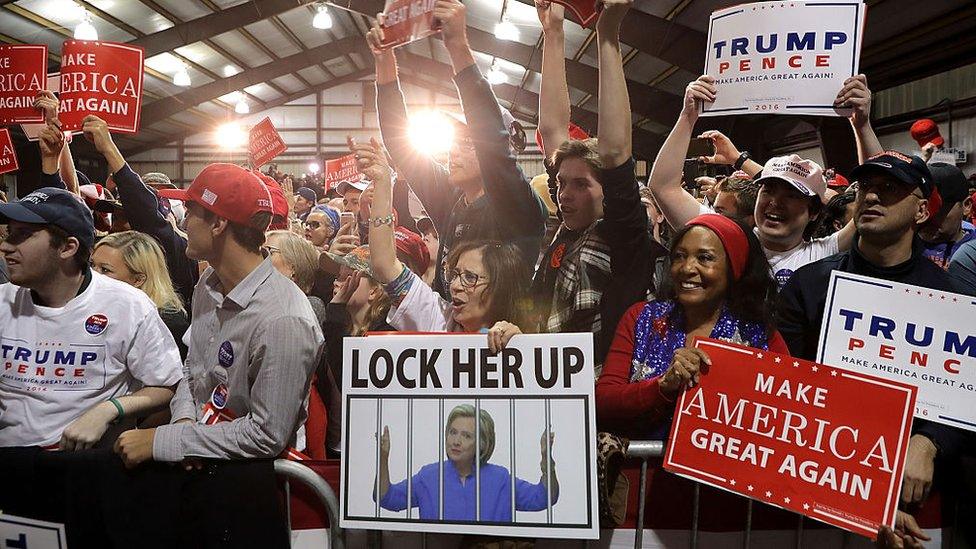
Trump rallies have been noted for their virulent outbursts against Hillary Clinton
Mr Trump's rallies increasingly became Republican revivalist meetings with an audience waiting for a cue to deliver their lines. They frequently broke into chants of "lock her up" at the mention of Mrs Clinton's name, or "build that wall" when Mexico came up, or "drain the swamp" at the mention of Washington.
The crowds revelled in a candidate who freed them from political correctness and who successfully tapped into discontent and a yearning for old certainties.
Both candidates drew energy from their opponent's weaknesses. Time and again the Clinton team thought Mr Trump was on the floor, brought down by his own flaws. They thought his comments about grabbing women would sink him but somehow he recovere, pleading "locker room talk" in mitigation.
Mrs Clinton could not escape her own carelessness over her emails and a private server. It opened the door for Mr Trump to call her "a liar" and "crooked". He cleverly - yet without evidence - painted a picture of a future constitutional crisis with Mrs Clinton in the White House under criminal investigation.
Mr Trump has had a simpler, more powerful message that America can be made great again.
Mrs Clinton exudes knowledge and detail, but as a candidate has struggled to find a compelling narrative. At her most convincing, she declared that if the middle class does not prosper, the American Dream is at risk.
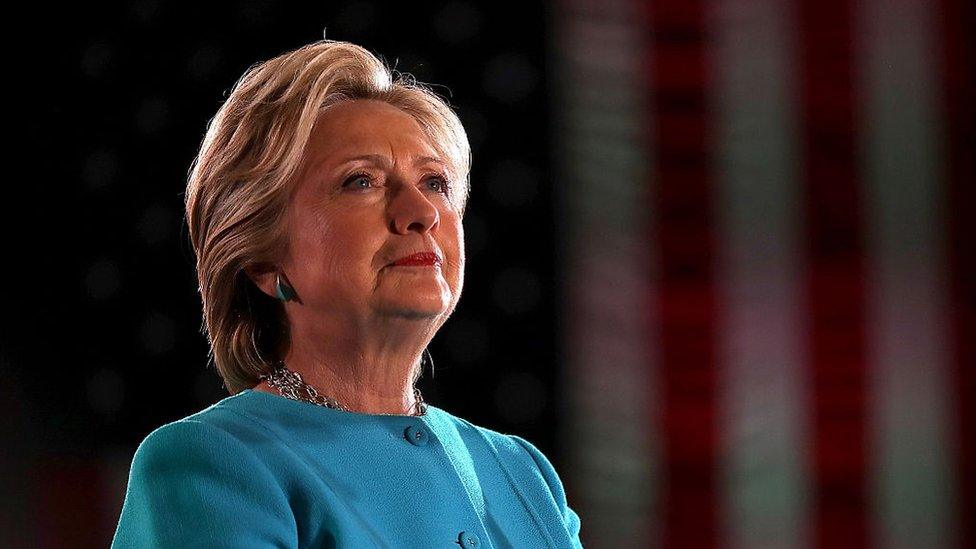
Hillary Clinton's critics say she has played too safe in this campaign
Ultimately she stands for safety, for experience, for liberal values. But to make that case she has been heavily dependent on Barack and Michelle Obama fighting not just for her, but for their own legacy.
Mr Trump presents himself as a strong man who will shake up "politics-as-usual" but who threatens to tear up trade deals and undo parts of the post-World War Two architecture that underpins global order.
Travelling through North Carolina, Pennsylvania, Wisconsin, amidst the stunning colours of the fall, you still find the warmth and generosity of Americans, bewildered by the harsh intensity of the political battle that swirls around them.
Politics here is broken. Congress scarcely functions. The voices of the men and women who believe in bi-partisanship and collegiality are too often missing.
Like with Brexit there is a revolt against the establishment which cannot be ignored: the inequality; the pace of social change that rattles identity; the perceived powerlessness of those in power in the face of globalisation; the disappearance of the known world.
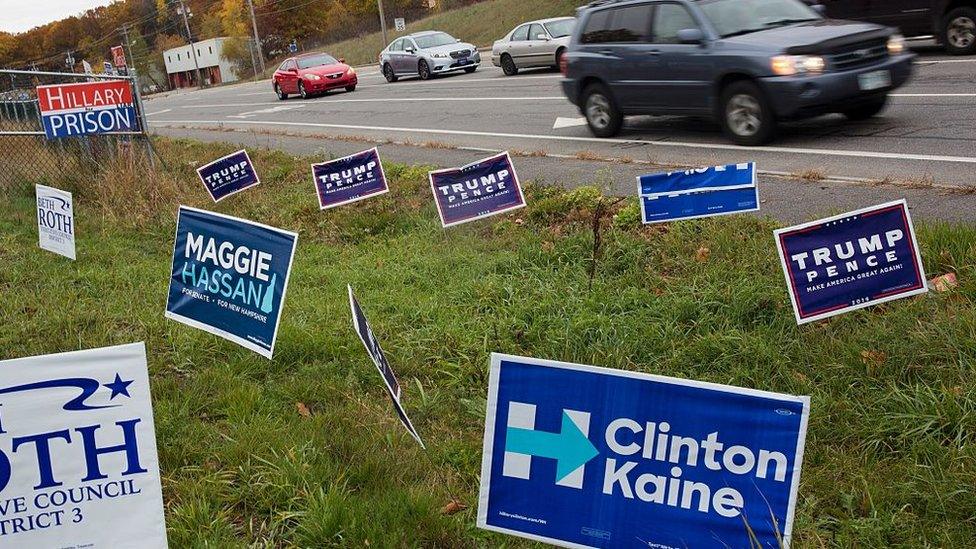
The election has exposed deep divisions within US society
And emerging from this vacuum is post-truth politics where facts are few and conspiracies and myths flourish. More than 300 economists have signed a letter accusing Mr Trump of peddling "conspiracy theories over sober assessments". But we live in an era where experts are dismissed and mistrusted.
And when the voting is done on Tuesday, it may not be over. The divisions will not heal quickly.
A quarter of Trump supporters say they will not accept a Clinton victory. And if that is the result, how can Mr Trump concede and offer Mrs Clinton congratulations when he has challenged her very right to be standing?
Already senior Republicans have promised to continue investigating Mrs Clinton even if she is elected president.
This is a profound moment for America. It faces an unenviable choice: electing a woman who is widely loathed or choosing a leader who has never held public office before and who many regard as dangerously ignorant.
Tuesday 8 November will be a historic moment for America.
- Published31 October 2016
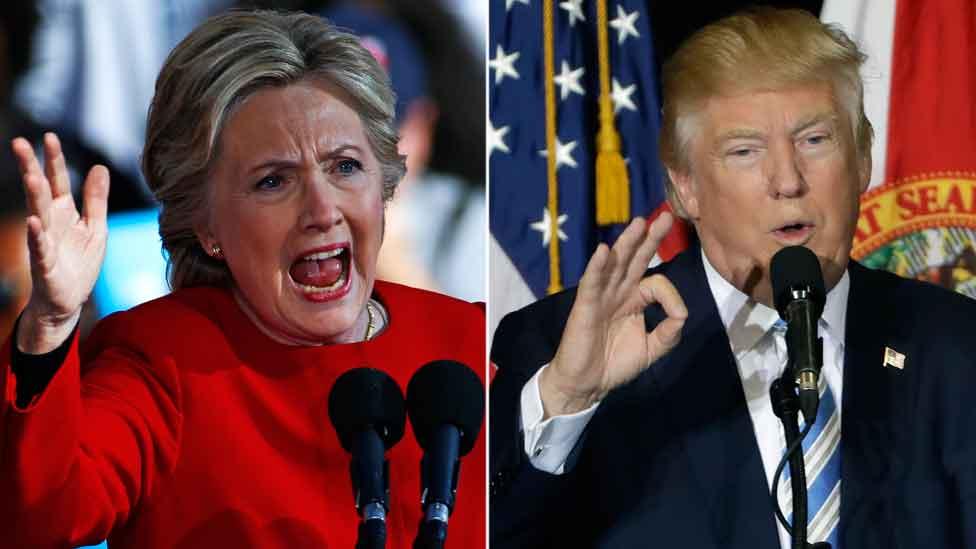
- Published8 November 2016
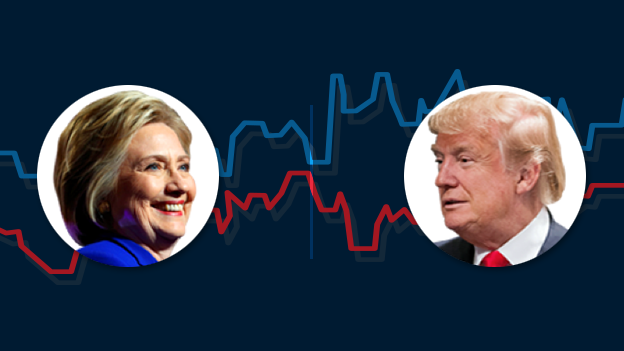
- Published8 November 2016
